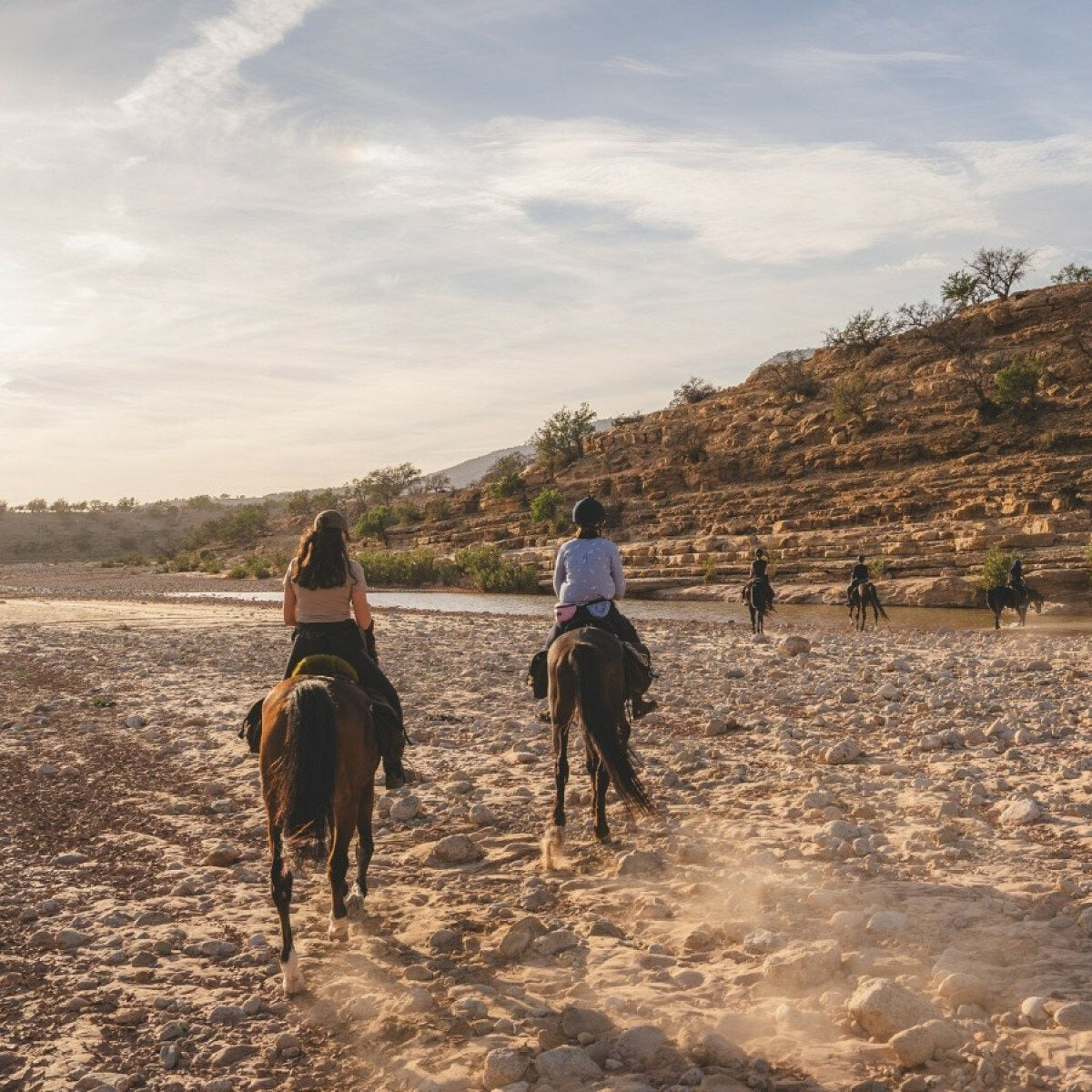For many years at Ranch de Diabat, we offered and promoted a horseback riding tour called "The Berber Villages." We used the term "Berber" without thinking too much: it was a common word, used in books and travel stories, and above all because Omar, whose mother has Berber roots, had always called himself "Berber," without considering the historical origins of the term.
However, we've realized that the cultural and historical significance of this word isn't what we want to convey with our work. Thanks to those who pointed this out to us and allowed us to delve deeper. So, one of our most beautiful treks is changing its name: from today, you'll find the Amazigh Horseback Trekking in our catalog.
Why we no longer want to use the term "Berber"
The word "Berber" derives from the Greek barbaros , originally used to refer to anyone who did not speak Greek. From there, it passed to the Romans and then to the Arab world, taking on an increasingly negative meaning over time. In some languages, even today, it carries with it the idea of "uncouth" or "uncivilized." It is a term born from those who viewed these peoples from the outside, with a colonial gaze. The term "Berber," though widespread, was imposed by external cultures and does not represent the true identity of these people .

Amazigh in Morocco today
Today, Amazigh culture is officially recognized in Morocco: since 2011, the Amazigh language has been co-official with Arabic. There is a vibrant and widespread movement for cultural and linguistic revival, which aims to preserve traditions, enhance the Tamazight language, and promote the Tifinagh script. Many Moroccans, even if Arabized in language or lifestyle, have Amazigh roots and acknowledge them with pride. It is an identity that is not only based on the past, but continues to evolve in the present.
We will use Amazigh instead
The people who inhabit the mountainous, desert, and rural areas of North Africa call themselves Amazigh (singular of Imazighen ). In the Tamazight language, amazigh means "free man." It's a word that tells a story of pride, resistance, and a connection to the land.
The Imazighen are present throughout much of Morocco, but also in Algeria, Tunisia, and Libya. They speak different but related languages, pass down ancient knowledge, build houses from raw earth, cultivate olive trees, and work with wood, iron, and wool. They live with respect for the environment and according to rhythms that today we would call sustainable, but which for them have always been part of everyday life.

A people deeply attached to horses
Among the Imazighen, the horse is more than just a means of transportation: it is a companion, a member of the family, an integral part of the community. For centuries, Amazigh equestrian traditions have passed down breeding techniques, riding styles, and horse care methods, and they tell the story of the empathetic relationship created with them. Our treks owe much to this approach, which we learned and adopted long ago.
Our commitment to Amazigh culture
We want to repay at least part of the great debt we owe to Amazigh culture and, in our own small way, do our part to spread it.
- We collaborate with local Amazigh guides and communities, ensuring that tourism is an opportunity for shared growth.
- We tell—and make sure they tell firsthand —their own traditions, with respect and curiosity, without filters or folklore.
- We offer authentic experiences, far from the mass tourism circuits, in true contact with daily life in rural Morocco.
- We promote responsible tourism, attentive to the environment, people, and local culture.
A new name, the same spirit
The name changes, the awareness changes, but the commitment and beauty of the experience remain. The Amazigh Horse Trek remains one of our most beautiful journeys, among mountains, villages, argan forests, and wild beaches. But now it has a name that better reflects what it is: an encounter. With nature, with horses, with a culture that deserves to be called by its name, with respect and gratitude.



